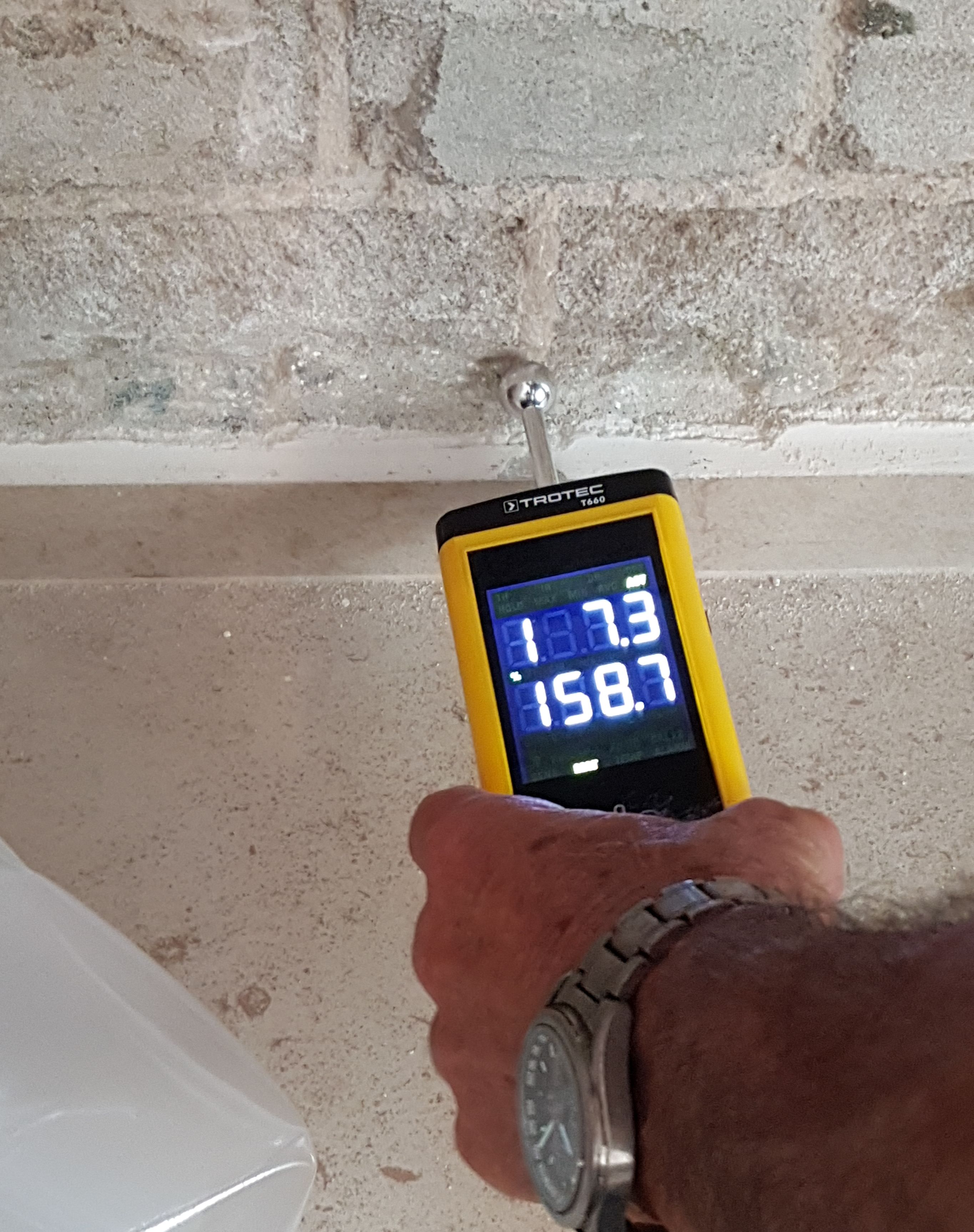Leading 10 Advantages of Using a Moisture Meter for Correct Measurements in your house
Leading 10 Advantages of Using a Moisture Meter for Correct Measurements in your house
Blog Article
The Ultimate Guide to Dampness Meters: A Comprehensive Summary and Exactly How They Can Save You Cash
Dampness meters serve as essential devices in finding and keeping an eye on moisture content in materials, aiding in avoiding costly damages and making certain the high quality of products. Understanding the subtleties of different types of wetness meters, their applications, and the prospective cost-saving benefits they provide can be a game-changer for businesses and professionals alike.
Types of Wetness Meters
One common kind is the pin-type dampness meter, which determines the electric resistance between two pins inserted right into a product. Pinless dampness meters, on the other hand, use electromagnetic sensor plates to check a bigger area without causing damage to the material's surface area.

Furthermore, there are likewise specialty moisture meters created for specific materials like hay, soil, or grain. These meters provide precise dampness analyses customized to the distinct buildings of the product being examined. Infrared moisture meters gauge the thermal buildings of a product to determine its wetness material non-invasively, making them useful for applications where pin or pinless meters might not appropriate. Comprehending the different types of wetness meters readily available can help sectors pick one of the most suitable device for their certain moisture dimension requirements.

Benefits of Utilizing Wetness Meters
Moisture meters supply indispensable advantages in precisely monitoring and evaluating wetness degrees in diverse materials and atmospheres (Moisture Meter). Among the primary benefits of making use of moisture meters is the prevention of potential damage triggered by excess moisture. By finding and addressing high moisture degrees early on, dampness meters aid to avoid mold growth, rot, and architectural damage in buildings, conserving both money and time on repairs. In addition, dampness meters aid in guaranteeing the top quality of materials during building and construction or production processes. By properly gauging moisture material, these tools aid preserve the stability of wood, drywall, concrete, and various other products, minimizing the danger of problems or failures.
In addition, using dampness meters can bring about enhanced energy effectiveness. By identifying areas with high dampness levels, such as leakages or poor insulation, changes can be made to boost energy preservation and reduce utility costs. In agricultural settings, wetness meters play a crucial function in maximizing crop returns by making it possible for farmers to monitor soil dampness degrees and make notified watering decisions. On the whole, the advantages of utilizing moisture meters span throughout various industries, offering cost-efficient options and promoting better quality assurance techniques.
Just How to Pick the Right Moisture Meter
When selecting a wetness meter, it's essential to ensure that the meter is appropriate for the certain product you will certainly be testing. Different products have differing electrical residential properties that can affect dampness readings, so selecting a meter developed for your material is crucial browse around this web-site for precise results. By carefully assessing these factors, you can choose a moisture have a peek here meter that satisfies your requirements and offers precise wetness dimensions for your jobs.
Correct Strategies for Wetness Meter Use

Expense Cost Savings Through Moisture Meter Applications
Just how can the strategic application of moisture meters lead to significant price savings across various sectors? In the agriculture market, wetness meters aid in determining the ideal time for gathering crops, preventing excess or over-drying dampness that can impact the final item's high quality.
In a similar way, in construction, wetness meters assist stop costly problems by discovering moisture levels in structure products, such as timber or concrete, which can result in architectural problems if not attended to quickly. By identifying problem areas early, specialists can take restorative measures to stay clear of considerable fixings or replacements, ultimately saving money and time.
Additionally, in the food processing market, moisture meters are crucial for keeping an eye on product quality and making certain compliance with safety laws. By properly measuring wetness web content in foodstuff, manufacturers can stop perishing, keep quality, and lower waste, resulting in substantial expense financial savings. Overall, the critical application of moisture meters is a valuable investment that can result in significant cost decreases and boosted efficiency throughout various sectors.
Conclusion
In final thought, wetness meters are beneficial devices for measuring and discovering moisture levels in different materials. By making visit this site use of the right moisture meter and following proper strategies, customers can effectively protect against pricey damages triggered by excess dampness.
Dampness meters serve as indispensable devices in detecting and monitoring moisture material in products, assisting in preventing expensive problems and ensuring the high quality of items. Infrared wetness meters gauge the thermal residential or commercial properties of a material to determine its moisture material non-invasively, making them beneficial for applications where pin or pinless meters may not be ideal.Wetness meters provide very useful advantages in properly analyzing and checking wetness degrees in varied materials and atmospheres. In agricultural setups, wetness meters play a vital duty in maximizing plant returns by enabling farmers to keep an eye on soil moisture degrees and make notified irrigation decisions.In verdict, dampness meters are useful tools for discovering and gauging dampness degrees in various products.
Report this page